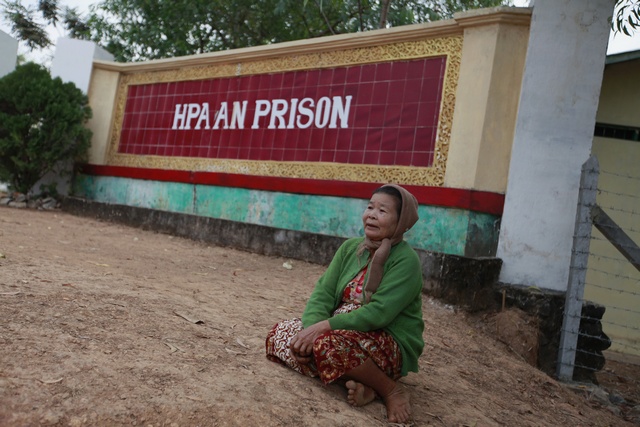Over one thousand inmates died in Burma’s prison labour camps between May 2004 and August 2014, according to Burma’s minister of home affairs. Speaking to a Lower House session of parliament on Monday, the minister, Brig-Gen Kyaw Kyaw Tun, listed the major causes of the 1,100 deaths as results of the weather, diet, lifestyle and accidents.
The notorious camps, known as Yebet, were first introduced to Burma in 1978. Kyaw Kyaw Tun figured the number of Yebet deaths between 1978 and 2004 at 4,187, telling parliament that the four-fold decrease in deaths in custody was thanks to a string of penal reforms enacted in 2004.
In 2004, the then ruling State Peace and Development Council dissolved 36 labour camps and renamed remaining facilities “Agriculture and Livestock Breeding Career Training Centres” or “Manufacturing Centres”.
“Between 1978 and 2004 when the Yebet camps were abolished, there were 4,187 inmate deaths – that’s an average of 161 deaths every year,” said Brig-Gen Kyaw Kyaw Tun.
“Between 12 May 2004 and 31 March 2011, there were 999 inmate deaths in the Agriculture and Livestock Breeding Career Training Centres and Manufacturing Centres; averaging 142 deaths per year. Between 1 April 2011 and 31 August 2014, 120 died in 46 centres,” he said.
According to government figures there are currently over 10,000 inmates serving in 46 centres across the country, where convicted criminals serve the “hard labour” elements of their sentences.
[related]
Five journalists from the now-defunct news journal Unity Weekly are among those to be recently sentenced to hard labour for their crimes. They were found guilty of exposing state secrets in July, after a January edition of Unity Weekly alleged the existence of a “secret chemical weapons factory” in Magwe division.
The five remain in Pakokku prison, having had their ten-year sentences reduced to seven after a successful appeal on 2 October.



